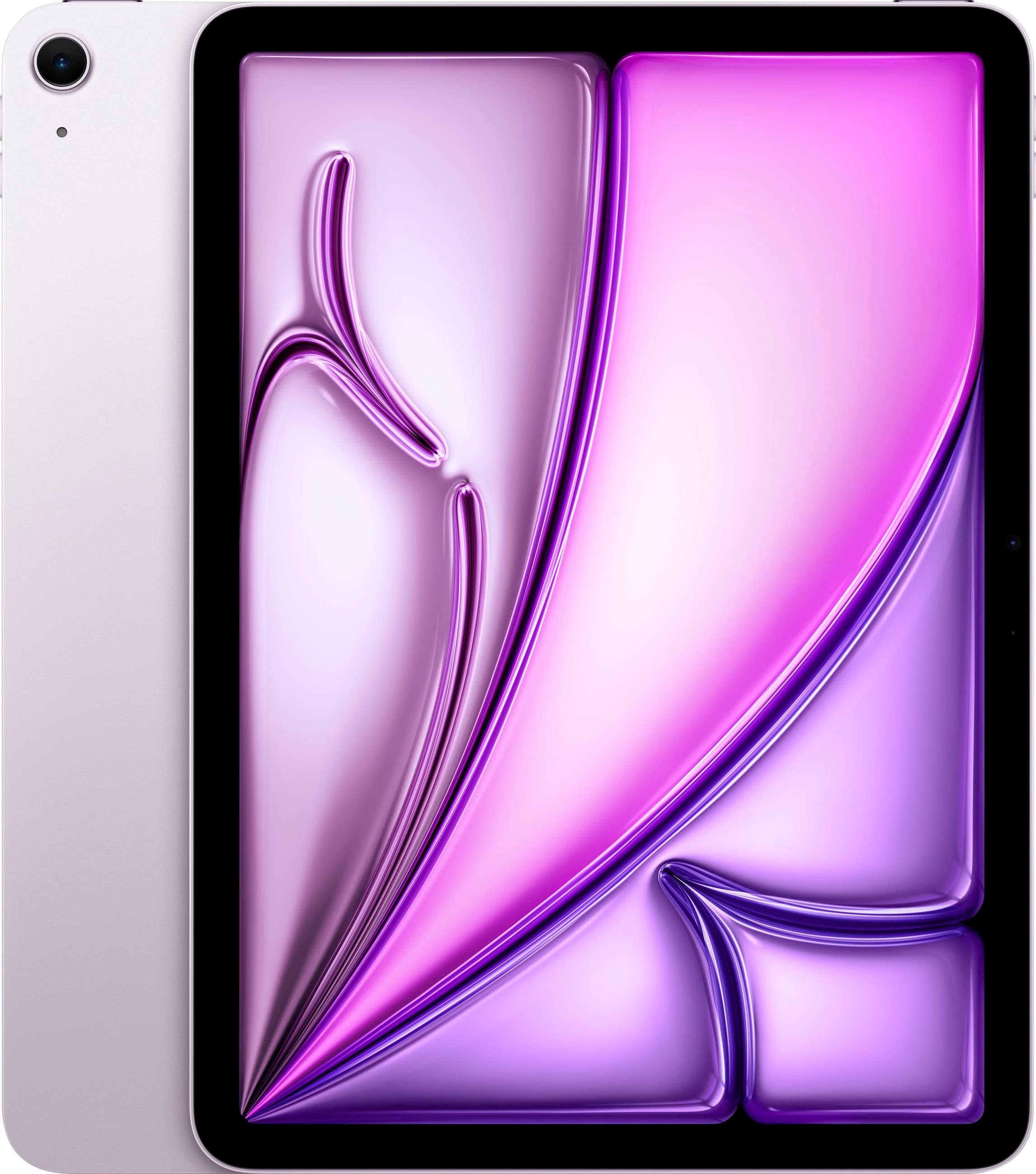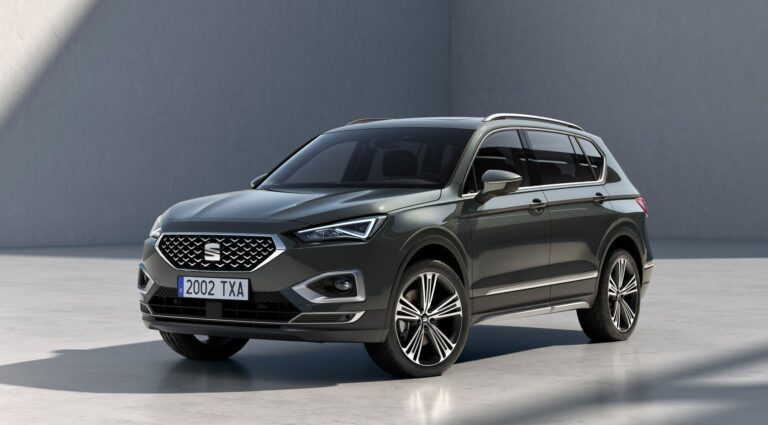Best Car Speaker Wire Brand: Unveiling the Backbone of Your Car Audio System
Best Car Speaker Wire Brand: Unveiling the Backbone of Your Car Audio System cars.truckstrend.com
In the pursuit of an unparalleled in-car audio experience, enthusiasts often focus on high-fidelity speakers, powerful amplifiers, and feature-rich head units. While these components are undoubtedly crucial, there’s an often-overlooked hero that silently dictates the quality of sound reaching your ears: the speaker wire. Far from being a mere conduit, the right car speaker wire acts as the vital artery, ensuring that the delicate audio signals from your amplifier reach your speakers with minimal loss and maximum clarity.
Choosing the "best" car speaker wire brand isn’t about finding a single, universally superior product. Instead, it’s about understanding the nuanced interplay of material, gauge, construction, and brand reputation to select the wire that perfectly matches your system’s demands, your budget, and your audio aspirations. This comprehensive guide will delve deep into the world of car speaker wire, equipping you with the knowledge to make an informed decision and elevate your mobile soundstage.
Best Car Speaker Wire Brand: Unveiling the Backbone of Your Car Audio System
Why Speaker Wire Matters: More Than Just a Copper Strand
At its core, speaker wire is designed to transmit electrical signals from an amplifier to a speaker. However, the quality of this transmission profoundly impacts the final sound. Poor quality wire can introduce several detrimental effects:
- Signal Loss (Resistance): Every wire has electrical resistance. Thinner, lower-quality wires have higher resistance, which impedes the flow of current. This resistance converts some of the audio signal into heat, resulting in a loss of power and fidelity, particularly at higher volumes or over longer runs. The sound can become dull, less dynamic, and lack punch.
- Distortion: Inadequate wire can cause frequency-dependent resistance, leading to an uneven frequency response. This means certain parts of the audio spectrum might be attenuated more than others, distorting the original sound.
- Noise Introduction: Poorly shielded or constructed wire can act as an antenna, picking up electromagnetic interference (EMI) from the car’s electrical system (alternator whine, ignition noise, etc.), introducing unwanted hums, buzzes, or clicks into your audio.
- Overheating: If the wire is too thin for the power it’s carrying, it can overheat, potentially damaging the wire itself, the amplifier, or even posing a fire risk.

Investing in quality speaker wire from a reputable brand ensures that the pristine audio signal generated by your amplifier arrives at your speakers as intended, preserving the dynamics, clarity, and richness of your music.
Key Characteristics of Quality Car Speaker Wire
Understanding these fundamental characteristics is paramount to selecting the right wire:

Gauge (AWG – American Wire Gauge): This is perhaps the most critical specification. AWG indicates the wire’s thickness. Counter-intuitively, lower AWG numbers signify thicker wire (e.g., 12 AWG is thicker than 16 AWG).
- Impact: Thicker wire (lower AWG) has lower resistance, making it better for longer runs, higher power applications, and maintaining signal integrity.
- Typical Car Audio Gauges:
- 18 AWG: Suitable for low-power applications (e.g., dashboard tweeters, very low-power rear fill speakers).
- 16 AWG: Common for most factory speaker replacements and aftermarket speakers up to 50-75 watts RMS per channel over short to medium runs.
- 14 AWG: Excellent all-around choice for most aftermarket speakers up to 100-150 watts RMS, especially for front stage components or rear deck speakers.
- 12 AWG: Ideal for high-power component sets, subwoofers (especially if the amp is close to the sub), or very long runs to any speaker.
- 10 AWG: Primarily used for powerful subwoofers or very high-current speaker applications over long distances.

-
Material Composition:
- Oxygen-Free Copper (OFC): The gold standard for audio wiring. OFC is copper refined to remove nearly all oxygen, significantly reducing impurities that can increase resistance and degrade signal quality. It offers superior conductivity and corrosion resistance.
- Copper-Clad Aluminum (CCA): A more affordable alternative where an aluminum core is coated with a thin layer of copper. CCA is lighter and cheaper than OFC, but it has higher resistance (approximately 40% more than OFC of the same gauge). While acceptable for very low-power applications or extremely short runs, it’s generally not recommended for critical listening or higher power systems due to greater signal loss and increased heat generation.
- Silver-Plated Copper: Sometimes found in premium wires, the silver plating on copper improves high-frequency conductivity due to the "skin effect" (where high-frequency signals tend to travel on the surface of a conductor). This can offer subtle improvements in clarity for discerning audiophiles but comes at a higher cost.
-
Strand Count: Quality speaker wire isn’t a single solid strand but comprises numerous thin copper strands twisted together.
- Benefits: A higher strand count makes the wire more flexible, easier to route in tight spaces, and more resistant to fatigue and breakage from vibration. It also provides a larger surface area for signal transmission.
-
Insulation/Jacket Material: The outer jacket protects the internal conductors from abrasion, heat, chemicals, and moisture.
- Materials: Common materials include PVC (Polyvinyl Chloride), rubber, and various proprietary polymer blends.
- Considerations: Look for durable, flexible jackets that can withstand the harsh automotive environment (temperature fluctuations, vibrations, potential for cuts). Some high-end wires feature advanced insulation for better noise rejection.
-
Flexibility: Especially important for car audio installations where wires must be routed through tight spaces, around corners, and under carpets. Flexible wire simplifies installation and reduces the risk of damage during the process.
-
Polarity Marking: Most speaker wires are clearly marked along one side (e.g., a stripe, ribs, or printed text) to help identify positive (+) and negative (-) terminals. Maintaining correct polarity throughout your system is crucial for proper speaker phasing and optimal soundstage.
Factors to Consider When Choosing Your Speaker Wire
Beyond the technical specifications, practical considerations will guide your purchase:
- System Power Handling: Match the wire gauge to the RMS power output of your amplifier per channel and the power handling of your speakers. Err on the side of slightly thicker wire if you’re unsure.
- Length of Runs: Longer wire runs inherently have more resistance. Compensate for longer distances by using a thicker gauge wire. A wire run from the amplifier in the trunk to a front door speaker will be significantly longer than one to a rear deck speaker.
- Budget: While quality wire is an investment, diminishing returns apply. Extremely expensive audiophile wire might offer marginal improvements that are imperceptible in a noisy car environment compared to a well-engineered mid-range option. Prioritize OFC and appropriate gauge within your budget.
- Installation Environment: Consider where the wire will be routed. If it’s exposed to potential abrasion, high heat, or moisture, ensure the jacket is robust enough. Flexibility is key for easy installation.
- Future Upgrades: If you anticipate upgrading your system to higher power levels in the future, it might be wise to install slightly heavier gauge wire now to avoid re-wiring later.
Top Contenders for "Best Car Speaker Wire Brand"
While "best" is subjective and depends on specific needs, several brands consistently earn high marks for quality, reliability, and value in the car audio community.
-
KnuKonceptz:
- Reputation: Widely regarded as a fantastic value brand. KnuKonceptz offers high-quality OFC wire at very competitive prices. They are a go-to for enthusiasts looking for excellent performance without breaking the bank.
- Key Products: Their Karma Kable and Bassik series are popular for speaker wire, known for high strand counts and flexible jackets.
- Why they’re great: Excellent conductivity, robust construction, and great bang for the buck.
-
NVX:
- Reputation: A strong competitor in the premium yet accessible segment. NVX offers high-purity OFC wire with impressive build quality and often stylish translucent jackets.
- Key Products: Their X-Series and V-Series speaker wires are known for their high strand counts, flexibility, and excellent signal transfer.
- Why they’re great: High performance, visually appealing, and a good balance of quality and price.
-
Stinger:
- Reputation: A long-standing, premium brand in car audio accessories. Stinger products are known for their exceptional quality, robust construction, and often feature innovative designs. They cater to both mainstream and high-end installations.
- Key Products: Stinger’s HPM (High Performance Multi-Strand) and PRO Series speaker wires are highly respected for their OFC composition and durable jackets.
- Why they’re great: Top-tier performance, excellent durability, and a wide range of gauges and configurations.
-
InstallGear:
- Reputation: A popular choice for budget-conscious installers and DIYers. InstallGear offers affordable wire kits and bulk wire, often in CCA, but also some OFC options.
- Key Products: Their various gauge speaker wires and amplifier wiring kits are widely available and provide a cost-effective solution for basic setups.
- Why they’re great: Extremely accessible price point, suitable for entry-level systems or those on a tight budget. (Be mindful of OFC vs. CCA).
-
Rockford Fosgate:
- Reputation: A cornerstone brand in car audio, renowned for its amplifiers and speakers. Their wiring solutions are designed to complement their high-performance audio components.
- Key Products: Rockford Fosgate offers OFC speaker wire as part of their wiring kits and bulk rolls, engineered for optimal power delivery and signal integrity within their ecosystems.
- Why they’re great: Reliable, high-quality wire from a trusted brand, designed to work seamlessly with their other components.
-
T-Spec (by Metra):
- Reputation: Metra is a giant in car audio installation accessories, and T-Spec is their performance-oriented wiring division. They offer a solid range of OFC and CCA wires with good build quality.
- Key Products: T-Spec V10 and V8 series speaker wires offer good value and performance for various applications.
- Why they’re great: Reliable, well-constructed, and widely available through car audio retailers.
Installation Tips for Optimal Performance
Even the best wire can underperform if not installed correctly.
- Proper Stripping and Termination: Use a wire stripper to remove just enough insulation without nicking the copper strands. For bare wire connections, twist the strands tightly. For more secure connections, use high-quality crimp connectors (spade, ring terminals) or solder connections, protected by heat shrink tubing.
- Route Wires Away from Power and Data Cables: To minimize noise induction, route speaker wires on the opposite side of the vehicle from power cables (e.g., amplifier power wire) and data cables (e.g., RCA interconnects). Cross them at 90-degree angles if unavoidable.
- Secure and Protect Wires: Use zip ties, wire loom, or automotive-grade tape to secure wires along their path, preventing them from rubbing against sharp edges, vibrating, or becoming pinched. Pass wires through existing grommets in door jambs and firewalls, or use new grommets when drilling.
- Maintain Correct Polarity: Double-check that positive (+) from the amplifier connects to positive (+) on the speaker, and negative (-) to negative (-). Incorrect polarity will cause speakers to be out of phase, resulting in thin, weak bass and a poorly defined soundstage.
- Minimize Wire Length: While choosing the right gauge is crucial, always use the shortest practical length of wire to reduce resistance and signal degradation.
Potential Challenges and Solutions
- Challenge: Voltage Drop Over Long Runs:
- Solution: Always use a thicker gauge wire for longer runs (e.g., from trunk-mounted amp to front door speakers). Consult wire gauge charts that factor in length and power.
- Challenge: Noise/Interference:
- Solution: Route wires correctly (separate from power/signal). Use quality OFC wire with good insulation. Ensure all grounds in your system are clean, tight, and at the same potential.
- Challenge: Wire Damage During Installation:
- Solution: Be patient and careful when routing. Use proper tools. Protect wires with loom or tape where they pass through holes or near moving parts.
- Challenge: Difficulty Routing in Tight Spaces:
- Solution: Choose highly flexible wire. Use wire pulling tools (fish tape, wire snake). Lubricate the wire with silicone spray if necessary (carefully, away from connections).
Estimated Price Table for Best Car Speaker Wire Brands
Please Note: Prices for speaker wire vary significantly based on gauge, length, current sales, and retailer. The table below provides estimated price ranges for common configurations (e.g., 50ft or 100ft rolls) from the mentioned brands, for their OFC (Oxygen-Free Copper) offerings unless specified. CCA (Copper-Clad Aluminum) options will generally be significantly cheaper. These are rough guidelines and not fixed prices.
| Brand | Common Gauge Availability (AWG) | Material (Predominant) | Typical Lengths (ft) | Estimated Price Range (per 50ft/100ft) | Key Feature/Notes |
|---|---|---|---|---|---|
| KnuKonceptz | 18, 16, 14, 12, 10 | OFC | 50, 100, 250 | $25 – $70 (16-12 AWG, 50-100ft) | Excellent value, high strand count, flexible. |
| NVX | 16, 14, 12, 10 | OFC | 50, 100, 250 | $30 – $90 (16-12 AWG, 50-100ft) | Premium feel, good aesthetics, high performance. |
| Stinger | 16, 14, 12, 10, 8 | OFC | 50, 100, 250 | $40 – $120 (16-12 AWG, 50-100ft) | Premium quality, robust, wide range of options. |
| InstallGear | 18, 16, 14, 12, 10 | CCA (OFC available) | 50, 100, 250, 500 | $15 – $50 (16-12 AWG, 50-100ft OFC) | Budget-friendly, widely available. Check material. |
| Rockford Fosgate | 16, 14, 12, 10 | OFC | 50, 100, 250 | $35 – $100 (16-12 AWG, 50-100ft) | Trusted brand, designed for their ecosystems. |
| T-Spec (Metra) | 16, 14, 12, 10 | OFC (CCA available) | 50, 100, 250 | $30 – $80 (16-12 AWG, 50-100ft OFC) | Reliable, good mid-range performance. |
Frequently Asked Questions (FAQ)
Q1: Is thicker speaker wire always better?
A1: Generally, yes, within reason. Thicker wire (lower AWG) has lower resistance, which means less signal loss and better power delivery. However, there’s a point of diminishing returns. Overly thick wire can be difficult to route and unnecessary for low-power systems. Match the gauge to your system’s power and wire run length.
Q2: Should I choose OFC (Oxygen-Free Copper) or CCA (Copper-Clad Aluminum) wire?
A2: For optimal car audio performance, OFC is always recommended. OFC offers superior conductivity, lower resistance, and better corrosion resistance compared to CCA. While CCA is cheaper, its higher resistance leads to more signal loss and potential heat issues, especially in higher-power applications or longer runs.
Q3: Does the brand of speaker wire really matter?
A3: Yes, it does. Reputable brands like those listed above invest in higher quality materials (pure OFC), better manufacturing processes (higher strand counts, consistent gauge), and durable insulation. This translates to better performance, greater reliability, and easier installation than generic, no-name wires.
Q4: Can I use regular household speaker wire in my car?
A4: It’s generally not recommended. Household speaker wire is typically not designed to withstand the harsh automotive environment (extreme temperature fluctuations, vibrations, exposure to chemicals). Its insulation might not be as robust, and it might not offer the flexibility needed for car installations. Stick to automotive-grade speaker wire.
Q5: How do I know what gauge speaker wire to use for my system?
A5: Consider the RMS power output of your amplifier per channel and the length of the wire run.
- Up to 50W RMS: 16-18 AWG for short runs, 14 AWG for longer runs.
- 50W – 100W RMS: 14 AWG for short runs, 12 AWG for longer runs.
- Over 100W RMS (or subwoofers): 12 AWG or 10 AWG, depending on specific power and length.
Always consult a wire gauge chart that factors in both power and distance.
Q6: What’s the difference between speaker wire and power wire for an amplifier?
A6: Speaker wire carries the amplified audio signal from the amplifier to the speakers, typically in smaller gauges (10-18 AWG). Power wire (often 0 AWG to 8 AWG) carries high-current DC power from the car’s battery to the amplifier. They serve different purposes and are designed for different current loads.
Conclusion
The "best" car speaker wire brand is ultimately the one that provides the optimal balance of performance, durability, and value for your specific car audio setup. While it might seem like a minor detail compared to flashy head units or booming subwoofers, the quality of your speaker wire forms the fundamental link that connects all your audio components.
By understanding the importance of gauge, material, and construction, and by choosing a reputable brand like KnuKonceptz, NVX, Stinger, InstallGear, Rockford Fosgate, or T-Spec, you ensure that your amplifier’s efforts are not wasted. A thoughtful investment in quality speaker wire guarantees that every watt of power and every nuance of your music reaches your speakers cleanly and efficiently, culminating in a truly immersive and satisfying in-car listening experience. Don’t let a thin, cheap wire be the weak link in your audio chain – empower your sound with the right connections.






